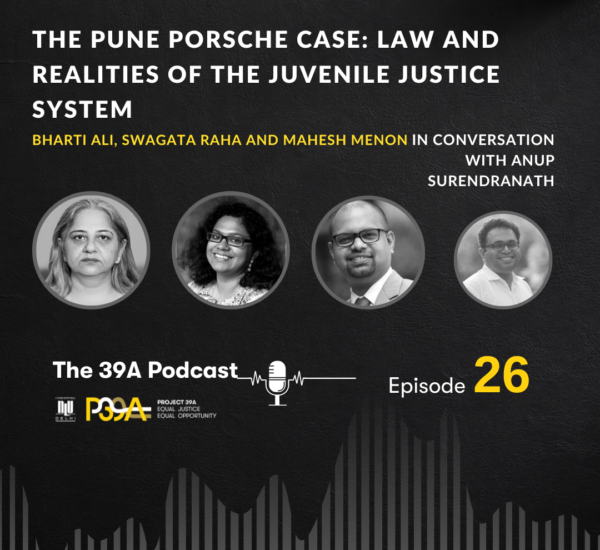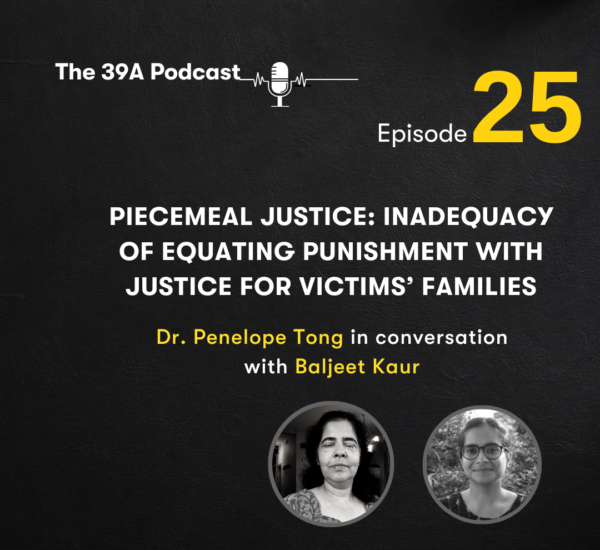In this episode concerning the recent decision of the Supreme Court concerning the Prevention of Money Laundering Act, 2002, we narrow our focus to the specific issue of self-incrimination addressed in the judgment. Are provisions of the PMLA violative of Article 20(3) of the Constitution? Aditya Mehta talks to Aabad Ponda, Senior Advocate, who argued before the Supreme Court concerning this specific issue.
Article 20(3) of the Indian Constitution gurantees an accused person a right against self-incrimination. The challenge in the present case was restricted to cases where the person is summoned in the character of the accused. In the scheme of PMLA as it stands, a person summoned in the character of the accused are penalised for non-compliance with the provision mandating cooperation. Mr Ponda addresses the decision of the Court in this matter. He further goes on to dicuss the status of persons not summoned in the character of an accused. Section 63(2) of the PMLA provides a fine up to 10,000 rupees in cases where a person refuses to answer a question in relation to summon. But what happens when such questions pertains to an answer which may incriminate such person? As per the PMLA judgment, non-compliance would still attract the penalty of Section 63(2). Mr Ponda respectfully disagrees with the findings of the Supreme Court and takes us through several judgments of the Supreme Court concerning the right to self-incrimination as well as the nature of special offences. He is of the opinion that ignoring the issues decided in larger benches of the Supreme Court like Ramanlal Bhogilal Shah and the ground realities of the implementation of the Act, the judgment opens itself to challenge. For this and more, please listen to the converstaion!
Note: The relevant sections and cases referred to in the podcast are listed below.
Legal Provisions:
Constitution of India
- Article 20(3) – Right against self-incrimination
- Article 21 – Right to life and personal liberty
Prevention of Money Laundering Act, 2002
- Section 50 – Powers of authorities regarding summons, production of documents and to give evidence, etc.
- Section 63 – Punishment for false information or failure to give information
- Section 69 – Recovery of fines
Evidence Act
- Section 24 – Confession caused by inducement, threat or promise, when irrelevant in a criminal proceeding
- Section 25 – Confession to police officer not to be proved
Foreign Exchange Regulation Act, 1973 (erstwhile)
- Section 40 – Power to summon persons to give evidence and produce documents
Customs Act, 1962
- Section 108 – Power to summon persons to give evidence and produce documents
Judgments:
- Ramanlal Bhogilal Shah v D K Guha & Ors (1973) 1 SCC 696
- Poolpandi v Superintendent, Central Excise & Ors (1992) 3 SCC 259
- Dalmia Cement (Bharat) Limited v Assistant Director of Enforcement Directorate 2016 SCC Online Hyd 64
- State of Bombay v Kathi Kalu Oghad AIR 1961 SC 1808
- M P Sharma v Satish Chandra, District Magistrate, Delhi (1954) SCR 1077
- Nandini Satpathy v P L Dani (1978) 2 SCC 424
- Selvi v State of Karnataka (2010) 7 SCC 263
- Renu Sharma v Collector of Customs 45 (1991) DLT 642




